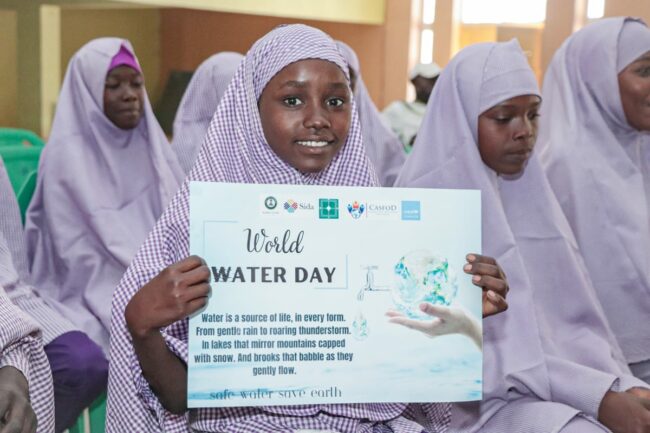United Nations Children’s Fund (UNICEF) has said only 4 per cent of Borno population use safely managed water in the State.
The UNICEF Chief of Field Office in Maiduguri, Phuong T. Nguyen, disclosed this on Friday while commemorating the 2024 World Water Day with the theme “Leveraging Water for Peace”.
She explained that access to clean water has been a challenge for many communities, despite it is inevitable for human survival.
According to her, the UNICEF’s partnership with Government in northeast Nigeria to improve access to safe water is yielding results, in 2023, 900,000 people gained access to safe water supply services in the region while 46 schools and 11 primary healthcare centres were supported with Water, Sanitation, and Hygiene (WASH) services.
She said there’s an urgent need to increase investments to accelerate progress for both climate-friendly water and sanitation services in Borno State and across northeast Nigeria.
“Access to drinking water is a human right. Any right taken away or threatened could lead to conflict. Therefore, protecting our most precious resource – water – is a right. Be it water for drinking or water for food (agriculture), it is a must for human survival, and anything that tries to come between humans and water is a recipe for conflict.
“Therefore, harnessing and safeguarding water to ensure it is always available, free from long queues and vandalism, is a recipe for peaceful coexistence in our IDP camps, communities, and the State at large.
“Success stories stemming from improved access to safe water include the achievement of two open defecation-free LGAs in Biu and Shani. Together with the Borno State Government, we are pioneering the innovative Small Town Water Scheme which eliminates expensive and unsustainable water trucking systems to communities affected by conflict and integrates networks of new and rehabilitated boreholes as well as water pipes powered by climate-friendly solar systems.
“This is in addition to ground water studies and community-based water management team comprising local plumbers, mechanics and other artisans. This achievement in Pulka and Damboa is a testament of progressive partnership and sustainable collaboration” she said.
“Commended the Borno State Government for this lead, I also recognize support from our donors on whose shoulders we stand to support children and families affected by conflict. They include the Swedish International Development Agency (SIDA), Foreign, Commonwealth and Development Cooperation Office (FCDO), Central Emergency Response Fund (CERF), and German Development Bank (BMZ).
She assured that UNICEF will continue to work with Government and other stakeholders to address water insecurity and improve the well-being of girls and boys in Borno state.
“For instance, UNICEF supported the fecal disposal of latrines in 110 IDP camps in 2023 to protect the most vulnerable children from contamination of water sources and disease outbreaks.“
